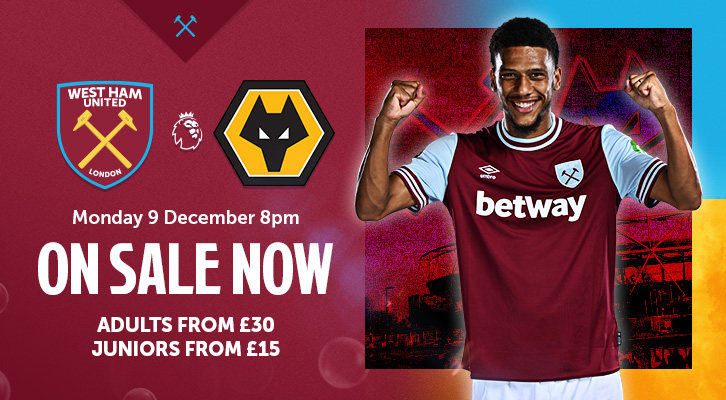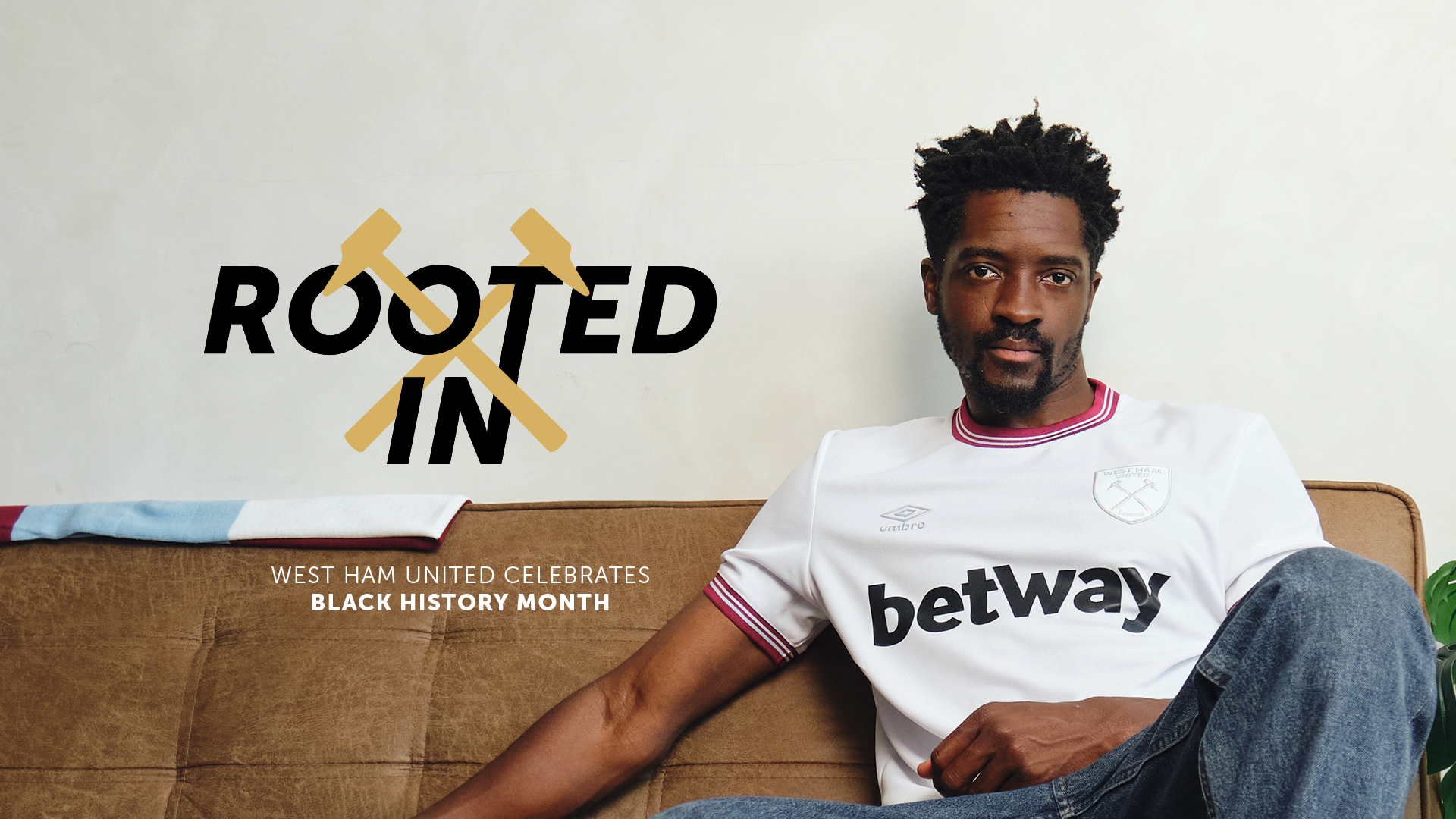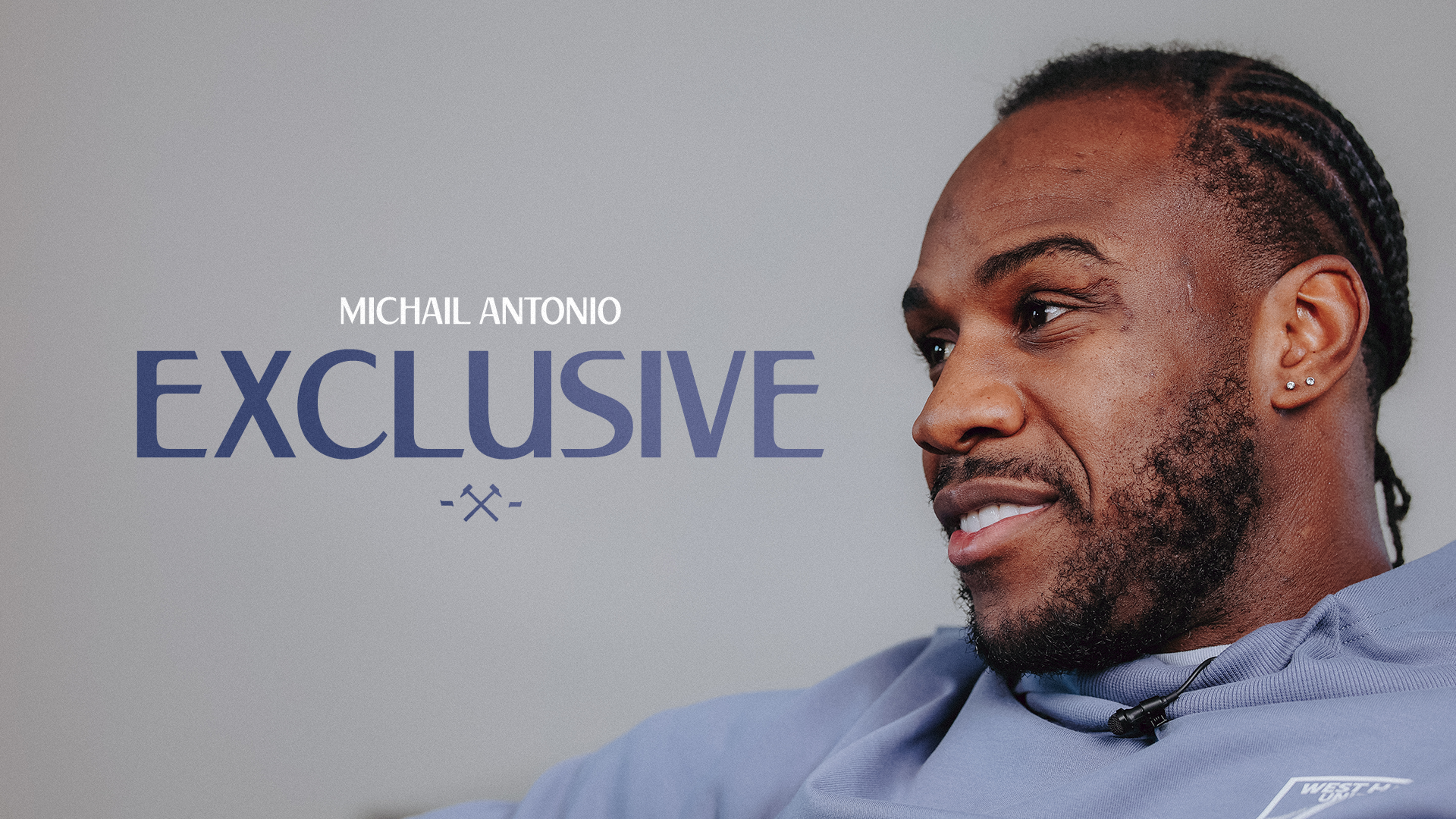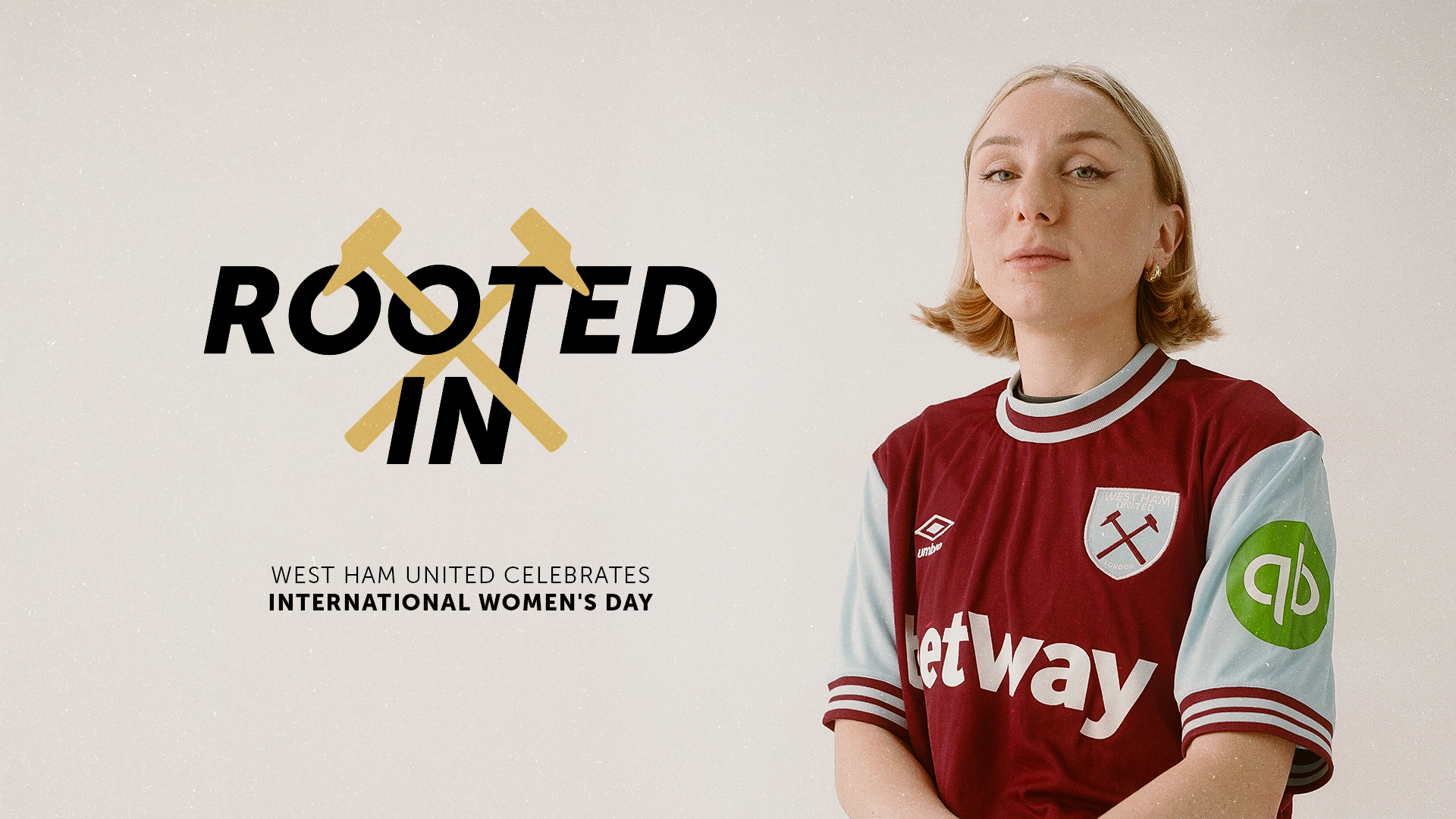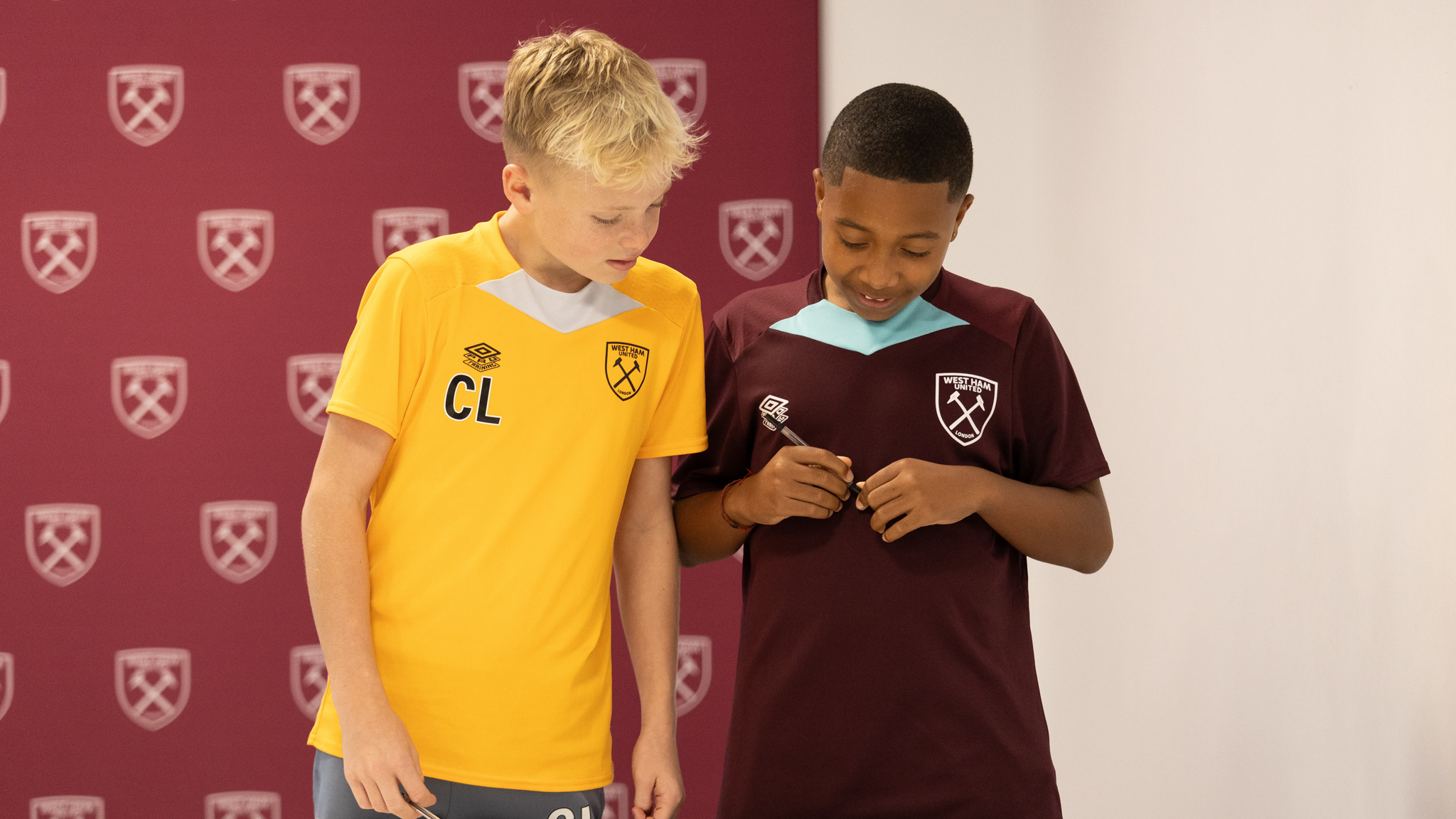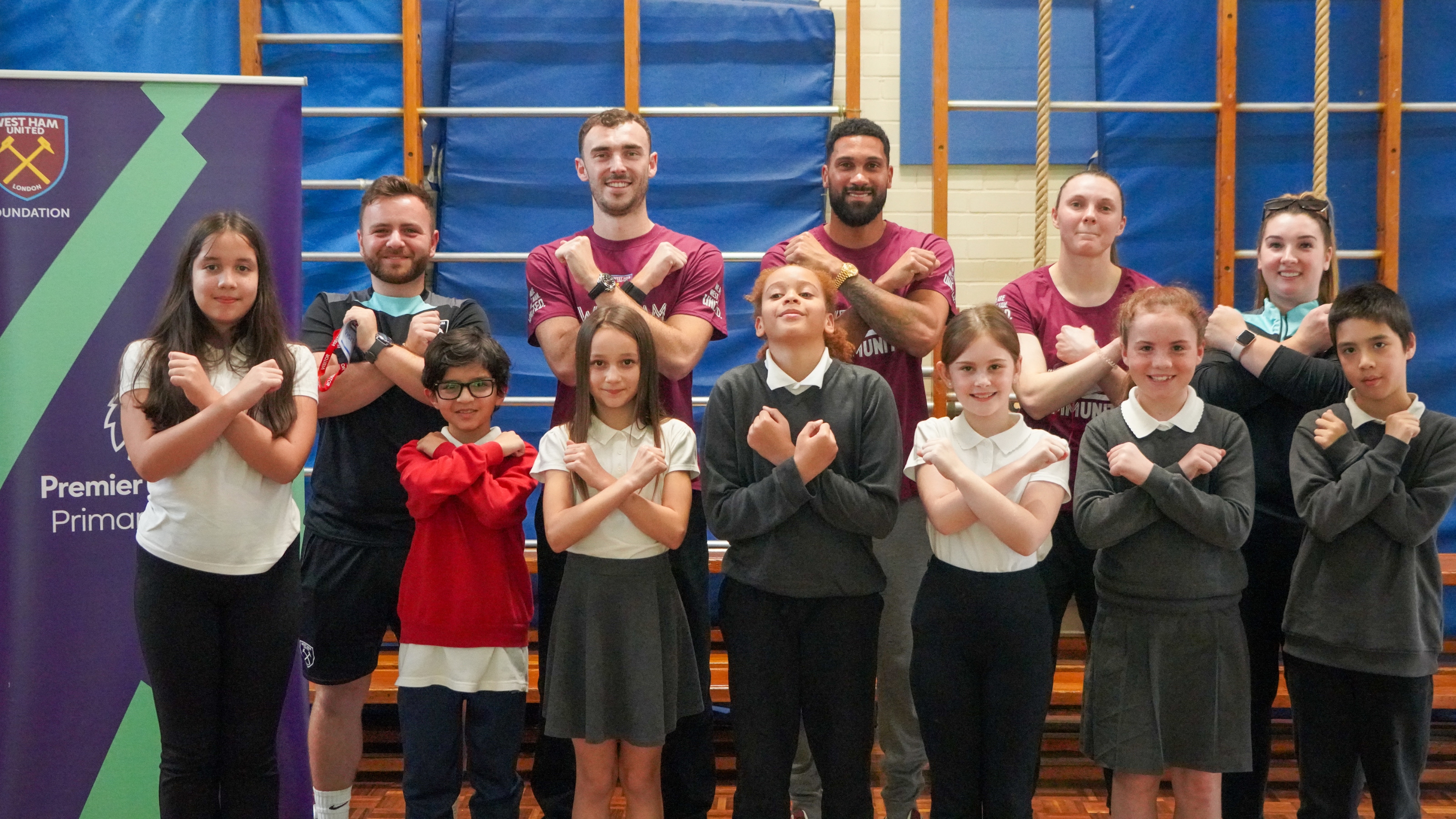Throughout October 2024, West Ham United is marking Black History Month by celebrating talented and young Black creatives in our local community and reclaiming the narratives by shining a light on the untold stories.
Over the course of the month, we’re profiling key voices from the West Ham family and beyond - including award-winning music producers, media leaders, podcast hosts and photographers.
By highlighting these individuals, we aim to share their often untold success stories, encouraging us to learn, share, discuss and celebrate their journeys, gaining a fresh perspective on the contributions of Black British people in our sphere.
Last up in our inaugural edition of the Rooted In series is MOBO-award-winning rapper, author and broadcaster Isaac Borquaye, AKA Guvna B, who has showcased his wide array of talents throughout his career.
Since starting out, he has released ten albums, supported Tinie Tempah on tour, written two books, produced segments for the BBC and served as a football pundit for Sky Sports News’ Good Morning Transfers show. With West Ham, he has worked on a range of projects, including helping to produce interviews with Aaron Wan-Bissaka and Mohammed Kudus.
Growing up a stone’s throw from Upton Park, West Ham has always been part of Guvna B’s life. Having moved next to the Club’s iconic Chadwell Heath training base at the age of 14, he vividly remembers hearing Glenn Roeder putting the Irons through their paces from the school playground.
Back then, he would be part of the crowd of young supporters standing outside Chadwell Heath, begging for autographs and photos like every other wide-eyed fan. Fast forward to 2024, and now he’s among those being targeted as a familiar face at West Ham.
“I was born and raised in Custom House, and people who are familiar with Newham will know it’s majority West Ham,” said Guvna B. “I went to a school called St Edward’s, and the playing field was backed onto the West Ham training ground.
“That’s when I started to slowly fall in love with the Club, because I’d come out of school and I’d see Frédéric Kanouté, Jermain Defoe and Michael Carrick driving out of training. Nobby Solano gave me five quid once, because I was a bit cheeky and asked him for some money. He rolled his window down, handed me a fiver, and I thought this is a real community, real family, and I got to know the players that way.
“I got really lucky to attend my first game because my best mate is called Joe Widdowson, and he was playing for the Academy. I couldn’t afford to go to football games growing up, but he got me a ticket to a game in my first year of secondary school, and it was the game where Paolo Di Canio scored against Wimbledon. Seeing that goal live was so special, and from then I’ve never looked back.”
East London has a rich and diverse history, and at West Ham we are proud to be based in one of the most multicultural areas of the country, where equality, diversity and inclusion are at the heart of everything we do.
Having relatable role models from our own Club and community is something we believe has an impact on young Black people - and Guv says he is incredibly proud to be part of a Club that leads the fight for equality and celebrates culture.
“I think West Ham is a community Club, especially if you grow up in east London,” he continued. “Now, I know a lot more in depth about the work that the West Ham Foundation does, such as offering a lot of young people opportunities that they wouldn’t otherwise have through sport. I just love that you go into the bakery, the fishmongers, or you go into the butchers and you’re surrounded by West Ham fans. For me, that’s special.
“Obviously, [Paolo] Di Canio is a big one in terms of role models, purely because in a playground you were debating about your football team, then having arguments. He was a flair player that we had that fans of other clubs rated and respected, so he was up there for me. Another one for me was Anton Ferdinand. When I started going to games, Anton was a big centre-back that had a bit of quality about him, and I just remember him being a significant part of my West Ham journey. So I’d say he was the one that connected with me quite a bit. There were a few players at that point who had a bridge to the fans. They weren’t just there to do a job, play football for 90 minutes, then go home, but it’s almost as if they really cared for the fans and were passionate about representing us, and that’s what I liked about Anton.
“I was quite lucky because at the time I was growing up, we had Kanouté, Defoe, Anton, Rio [Ferdinand], and Nigel Reo-Coker, who was captain for quite a while as well. That was special for me, because if you don’t see yourself, it’s hard to be yourself, and I saw representation on that surface level. But also, I grew up on a council estate in Custom House, so we had Africans, Caribbeans, Europeans and working-class British people, so I felt like I was always represented.
“It’s not until you get a bit older and you start to see how some of the underlying biases and prejudices in society play out and can affect you in a negative way. But thankfully, I’ve been blessed enough to have a community where I can share some of my struggles and some of my concerns, and we’re all in it together, and we can be part of the change that we want to see. What people don’t understand about football is that I can’t think of anything else that brings people together and has the power to make positive change in different areas of society. But at West Ham, it feels that that’s a real possibility, and that’s something I’ve always been grateful for.”
Guvna B has also worked with the Club on a series of different projects in recent seasons, most recently hosting interviews with Wan-Bissaka and Kudus over the course of the last year. To work for the Club so close to his heart is something he once could have never dreamed about.
“It’s a bit of a dream come true working with West Ham, because I’ve been passionate about football for all of my life, but went into music and started rapping in the playground at school,” Guv confirmed. “Back then, I never really thought about how these two different worlds can be connected, but as time goes on, you see the bridge between things like music, fashion, football and culture, and I’m lucky to support a Club that sees that as well.
“From when I started interviewing players and having a bit of a chat with them, one of the things that’s struck me from very early on is everyone was so down to earth. I think Nobes [Mark Noble] was the first interview I did, and he just spoke to me like he’d known me for about 20 years. I think it’s a testament to the Club and the culture that we have that everyone’s really down to earth.
“To be involved with the Kudus signing was massive. He’s into his music, and also the relationship that I’ve built with the team behind the scenes at West Ham meant that I was able to be a part of it. It was really organic, and I feel like it made Mo feel like part of the Club from the start - the fact that we’d prepared that announcement. It was really special for me and attracted millions and millions of views.
“Aaron [Wan-Bissaka] has probably got a reputation for being quite a quiet person, but he opened up quite a bit, and you saw a different side and facets to him, and it’s good to see people of his quality and personality playing for our Club.
“It’s always great to be involved, and I’m happy that myself and a few others are almost changing the perception of what someone thinks a West Ham fan is. West Ham is a cult Club, and people are aware of some of the rivalries we’ve got, so you get this picture of what a typical West Ham fan is, but what I find is that it’s far from the truth. It’s not just white people, not just bald people, and it’s not just big people. We come in all different shapes, sizes and colours, and I think the beauty of what I bring to the Club, as well as many others, is that it gives like a realistic face of this Club, real diversity, real people and from all different kinds of walks of life.”
Guvna B also highlighted the importance of ‘entry and connecting points’, and the importance of the Club helping the community of east London achieve its full potential.
He added: “I think a big connecting point with me was Isla Caton, a young girl who sadly lost her life due to neuroblastoma. The way that the Club and supporters got behind her and her family was quite special, and it was just another example of how special this fan base is and how we’re all in it together.
“One of the ways in which I’ve seen that is via social media. I’m pretty active on X and Instagram, and there’s just a lot of West Ham fans that have had an entry point into the Club through various different ways. Not everyone grew up having a Season Ticket, and some people couldn’t afford to go to games, but they found their way in, and it’s a really special community.
“There’s a lot of need and a lot of deprivation in Newham, and I think West Ham have always been really good at embedding themselves and working within the community, and working with young people to help them realise their full potential. They can look at people like me and think, you know what, music is an option, or working for the Club that you support is an option. It’s about providing different opportunities, not just sport and music, to help people think they can contribute to their community and be part of positive change. I think that’s special.”
